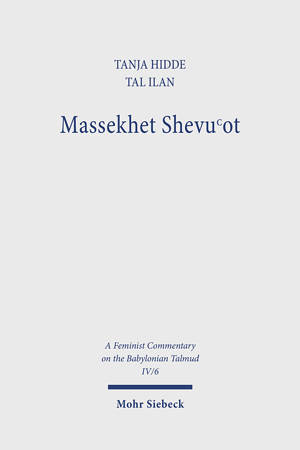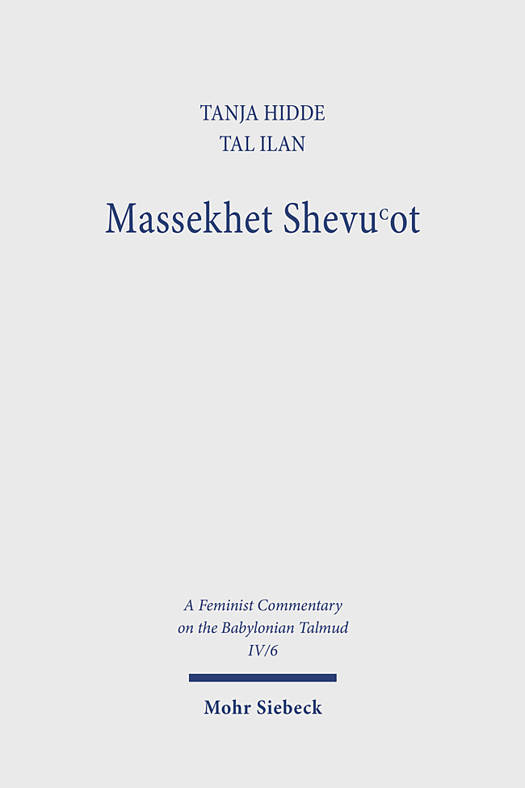
- Afhalen na 1 uur in een winkel met voorraad
- Gratis thuislevering in België vanaf € 30
- Ruim aanbod met 7 miljoen producten
- Afhalen na 1 uur in een winkel met voorraad
- Gratis thuislevering in België vanaf € 30
- Ruim aanbod met 7 miljoen producten
Zoeken
€ 274,95
+ 549 punten
Omschrijving
Tanja Hidde and Tal Ilan offer a feminist commentary on the Massekhet Shevu'ot of the Mishnah and the Babylonian Talmud by focusing on women and gender in the texts. The tractate deals with oaths, mostly in a legal, court context. In presenting and interpreting the texts in Mishnah Shevu?ot, Tanja Hidde is concerned first and foremost with the discussion of women's participation in court cases that require oath-swearing, as well as women's exclusion from serving as witnesses. Focusing on the Babylonian Talmud, Tal Ilan shows that, in their commentary on Mishnah Shevu'ot, the Babylonian rabbis continually use chapter 5 of the Book of Numbers, because it includes a wife suspected of adultery, who swears an oath. Tal Ilan illustrates that the Babylonian rabbis use the wife's oath-swearing as a basis for commenting on other actions of both men and women.
Specificaties
Betrokkenen
- Auteur(s):
- Uitgeverij:
Inhoud
- Aantal bladzijden:
- 306
- Taal:
- Engels
- Reeks:
Eigenschappen
- Productcode (EAN):
- 9783161645242
- Verschijningsdatum:
- 7/05/2025
- Uitvoering:
- Hardcover
- Formaat:
- Genaaid
- Afmetingen:
- 165 mm x 239 mm
- Gewicht:
- 612 g

Alleen bij Standaard Boekhandel
+ 549 punten op je klantenkaart van Standaard Boekhandel
Beoordelingen
We publiceren alleen reviews die voldoen aan de voorwaarden voor reviews. Bekijk onze voorwaarden voor reviews.







